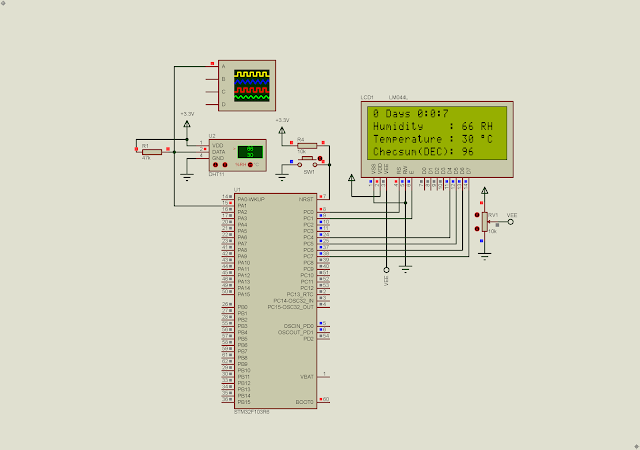Overview
LM35 is an analog temperature to voltage converter. Its analog voltage output is linear with the environment temperature. Without a microprocessor's ADC module we can calculate manually using an AVM or a DVM, and self calculation.
 |
| Program Simulation In Proteus |
For some electronics hobbyist project without micro-controller, an ICL7107 analog to BCD 7-segment display output is applied. We can use LM35 as an analog input with an adjustment to a correct temperature value.
 |
| Features and Applications |
A small micro-controller with an internal ADC such as PIC16F818, or even an Arduino can easily read and interpret temperature value in degree Celsius.
 |
| Device Information |
This temperature sensor typically need a DC power supply between +4 and +20V. A +5VDC stable power supply is common with most of TTL type 8-bit micro-controllers.
STM32F103R6 Programming with STM32CubeIDE
An STM32F103R6 is among the STM32 ARM Cortex M3 micro-controller family with low power consumption and low cost. This device operates in 3.3VDC mode. Some of I/O pin tolerates with a +5VDC input voltage.
LM35 and character LCD requires a stable +5VDC power source to operate. This source can be driven from a USB power bus, or an additional voltage regulator. However the STM32F103R6 must supplied from a +3.3V only power source.
In this example, the STM32F103R6 continuously read the analog temperature value from the sensor. It will be display on a 16x2 HD44780 character LCD in degree Celsius.
I configure its I/O pins as follow.
 |
| Pinout and Configuration |
I select the ADC1 module with preferred configurations.
ADC1 Configurations |
The lcd.h and lcd.c file are already created. We just add and include them in project folder and C source file.
Click here to download its source file.




